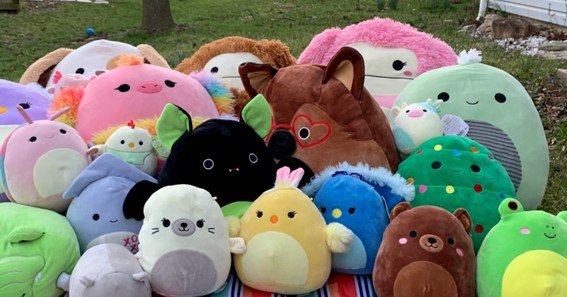Squishmallows, the popular plush toys known for their soft texture and diverse characters, have recently become the center of a boycott movement. This article delves into the factors prompting consumers to reconsider their support for the brand, examining political affiliations and legal disputes that have influenced public perception.
Political Affiliations and Public Response
In early 2024, Judd Zebersky, CEO of Jazwares—the parent company of Squishmallows—publicly expressed support for Israel amid the ongoing conflict with Palestine. His statements, shared on LinkedIn, included mentions of company interns returning to Israel for defense efforts and highlighted the company’s association with organizations supporting Israeli troops.
These declarations sparked significant backlash online, with many consumers calling for a boycott of Squishmallows and Jazwares, perceiving the company’s stance as taking sides in a sensitive geopolitical issue.
Legal Disputes and Brand Integrity
Adding to the controversy, Squishmallows’ parent company, Kelly Toys Holdings, filed a lawsuit against Build-A-Bear in February 2024. The lawsuit alleged that Build-A-Bear’s new “Skoosherz” line copied the distinctive design elements of Squishmallows, including shape, facial features, and fabric choices.
Build-A-Bear countered with its lawsuit, denying the allegations and seeking a declaratory judgment. These legal battles have drawn public attention, raising questions about brand originality and corporate ethics within the plush toy industry.
Impact on Consumer Behavior
The combination of political statements and legal controversies has led to a segment of consumers reevaluating their support for Squishmallows. Social media platforms have become arenas for debate, with some advocating for a boycott to express disapproval of the company’s actions, while others argue for separating the product from corporate politics.
This division reflects the broader challenge companies face in maintaining brand loyalty amid political and legal controversies.
Conclusion
The call to boycott Squishmallows underscores the complex interplay between corporate actions, political affiliations, and consumer perceptions. As companies navigate these challenges, transparency and responsiveness to consumer concerns remain crucial in maintaining trust and brand integrity.
FAQ
-
What prompted the boycott of Squishmallows?
- The boycott was prompted by the CEO’s public support for Israel during the conflict with Palestine and subsequent legal disputes over product designs.
-
How did the company respond to the backlash?
- As of now, there has been no public statement from Jazwares or Squishmallows addressing the boycott calls.
-
What are the legal disputes involving Squishmallows?
- Squishmallows’ parent company sued Build-A-Bear, alleging that their “Skoosherz” line copied Squishmallows’ design elements.
-
Has the boycott affected Squishmallows’ sales?
- There is no publicly available data indicating a significant impact on sales due to the boycott.
-
Are there alternative plush toy brands to consider?
- Yes, consumers can explore other brands such as TY Beanie Babies, Jellycat, and Aurora World for plush toys.









